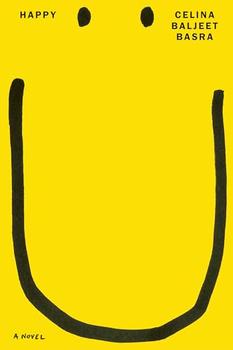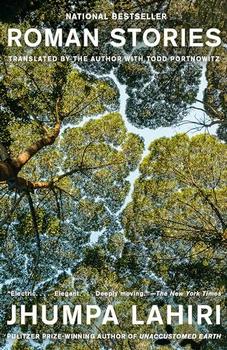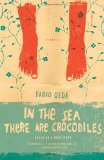Summary | Excerpt | Reading Guide | Reviews | Beyond the book | Read-Alikes | Genres & Themes | Author Bio

A Novel
by Celina Baljeet BasraA child's name is often a blessing from elder relatives for their future. Happy Singh Soni's siblings were all given proper Punjabi names: Fatehpal, "victorious one"; Davinder, "leader of all gods"; Ambika, "moon goddess." Born ten years later than his next youngest sibling, Happy speculates that when his parents chose his name, they were feeling "fancy" and, wanting him to have international success, picked the most international name they could think of. With a name like Happy, how could a child not be destined for greatness and joy on a global scale? Hoping to make that destiny a reality, Happy leaves his rural village and parents' cabbage farm in India to chase his dream of becoming a famous actor known for melancholy, pretty-boy roles. But first, he must pay off his debt to the international syndicate who has arranged his travel to Europe, landing him in Italy. Happy, separated from his mother's beloved sugar rotis and contending with his "irregolari" immigration status, is employed by the mysterious Coordinators to work off his debt, first in a kitchen at a Roman fried fish restaurant, then as a radish picker on the outskirts of Lazio. Along the way, he meets an assorted cast of characters and maintains an unbelievably chirpy spirit that will stay in your head long after the book is finished.
Celina Baljeet Basra's debut novel is a postmodernist work, characterized by unreliable narration, a non-linear structure, and grappling with relevant political and social themes of today. Happy is a dreamer who sees the world through rose-colored lenses. So rose-colored that he is fundamentally untrustworthy. Excitable, impatient, charismatic, single-minded, he is "unable to distinguish the important from the unimportant," and others "seriously question whether he has a firm grasp of what is real and what is not" (from his third-grade teacher in response to his essay on "My Future Profession"). When he first moves to Italy, our main clues to the harsh conditions of his daily life are not through his narration, but his Italian vocabulary lists interspersed between sections, such as in the phrase "Questo è il pane di ieri? Io faccio volentieri" (Is this yesterday's bread? I'll take it gladly).
He is willing to scrounge for leftover bakery bread, but doesn't explicitly tell us so. He also describes sharing a bed spot with an unknown irregolari who works nights, but focuses on the vivid imaginary persona he has created in his head for this character — Igor from Hungary, who makes a top-notch ragu worthy of international renown. Other times, Happy wanders off into a reverie of what it's like to be a pigment of color in a classical work of art or reminisces about the martial arts showdown of Bruce Lee versus Chuck Norris in the Colosseum, rather than focus on how lonely or hard his current life is.
Happy's narration is interrupted with vignettes in other characters' voices. His sister Ambika gives practical, hard-won advice before he leaves home (whatever path you decide to take, commit, and don't look back). Zhivago, Happy's best friend at the radish farm, organizes to protest the inhumane conditions, and there are vignettes from fellow workers about the past farms they've worked on as well. Other voices serve as a more realistic counterpoint to Happy's outlook on his new life and highlight the sobering conditions of starting over abroad: uncertainty, homesickness, pressure to succeed and support loved ones at home, and a system stacked against immigrant workers.
Because the story is told through a series of multiple voices, there is no true narrative structure, though the path of the story (and of Happy's movements) is not difficult to follow (village boy with big dreams grows up on parents' cabbage farm, boy leaves farm to chase dreams, boy ends up in bad situation). In fact, I enjoyed the almost abrupt section breaks, as characters and thoughts are introduced that seemingly have no relation to what is currently going on with Happy's geographic travels. This is how we meet his family members and also how we learn of his vivid daydreams, such as his interviews with imaginary journalists while he is taking a poo ("The Loo Interviews"). Each of these breaks is short and offers comical respite in moments when themes of intercontinental development and capitalist exploitation of human workers become gloomy. This format also allows the author to show us, right in the very beginning, Happy's mad gamble to get out of radish picking: his job pitch letter to become a future shepherd to the black sheep of Sardinia. Because the story starts with this letter, we already know that Happy is unhappy. He is a tragicomic character, fighting hopelessly against forces he does not understand. For this reason alone, I felt a sense of doom throughout, despite the text and voices being humorous and the structure whimsical.
Overall, I found this a compelling, quick read and ambitious novel. There is an element of dark humor in the contrast between the pithy voices with the darker content. And I found myself genuinely interested in Happy's journey. He is a character you won't soon forget.
![]() This review was originally published in The BookBrowse Review in January 2024, and has been updated for the
November 2024 edition.
Click here to go to this issue.
This review was originally published in The BookBrowse Review in January 2024, and has been updated for the
November 2024 edition.
Click here to go to this issue.

If you liked Happy, try these:

by Jhumpa Lahiri
Published 2024
The first short story collection by the Pulitzer Prize–winning author and master of the form since her number one New York Times best seller Unaccustomed Earth • Rome—metropolis and monument, suspended between past and future, multi-faceted and metaphysical—is the protagonist, not the setting, of these nine stories

In the Sea There are Crocodiles
by Fabio Geda
Published 2012
When a ten-year-old boy's village in Afghanistan falls prey to Taliban rule, his mother shepherds the boy across the border into Pakistan but has to leave him there all alone to fend for himself. Thus begins Enaiat's remarkable and often punishing five-year ordeal.
Your guide toexceptional books
BookBrowse seeks out and recommends the best in contemporary fiction and nonfiction—books that not only engage and entertain but also deepen our understanding of ourselves and the world around us.